Air-con bills - not climate change - among concerns for US midterm voters in scorching Las Vegas
In a series leading up to the US midterm elections, CNA's Nick Harper looks at issues that loom largest for Americans.
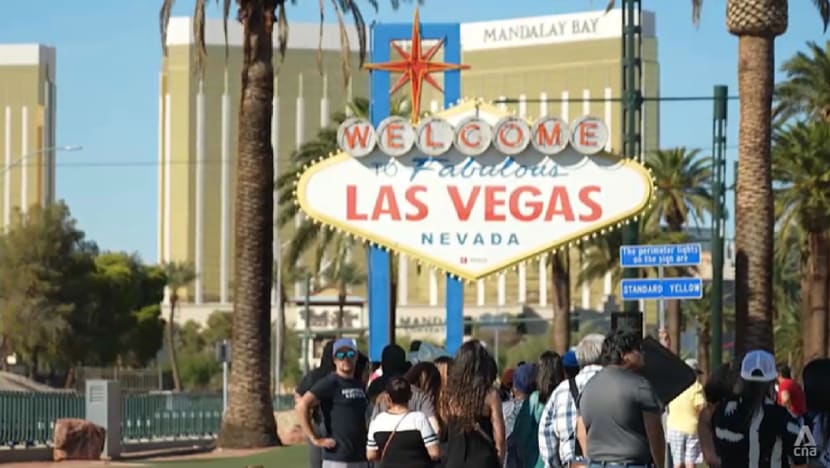
Tourists stand under a "Welcome to Fabulous Las Vegas, Nevada" sign.
LAS VEGAS, Nevada: Rising up from the desert in Nevada, the glitzy city of Las Vegas known for its casinos and nightlife is at the forefront of climate change – it is the second-fastest warming city in the United States, and currently in its 20th year of drought.
Summer temperatures in Las Vegas have soared by 5.8 degrees Fahrenheit since 1970, according to a report by non-profit research group Climate Central in July.
The population in the wider Clark County – which contains Las Vegas – is also estimated to grow from its current 2.4 million people to more than 4 million in the next 30 years.
Rapid urban growth like this is partly to blame for hotter summers, say experts, as cities absorb and retain more heat than undeveloped land.
But despite the immediate reality of climate change, the issue has taken a backseat for many Las Vegas voters ahead of the US midterm elections, said Ms Cinthia Moore, coalition coordinator of the Nevada Environmental Justice Coalition.
Voters are more concerned by increasing costs of living - such as, ironically, bigger air-conditioning bills, as they attempt to combat the heat brought on by climate change and human activity.
Politicians and residents are also putting more emphasis on expansion rather than resolving present environmental issues, Ms Moore added.
“We’re focusing more on building out and we’re leaving behind our communities that are affected the most by air pollution and other environmental injustices,” she said.
“Not only are we in the middle of an urban heat island, but we’re also in the area that has the worst air quality in town,” she said of east Las Vegas, an area populated by a largely immigrant community which has too few trees and too much concrete.
URBAN EXPANSION
Recent legislation has allowed up to 161 sq km of Nevada’s deserts – one of America’s largest untouched ecosystems – to be cleared for urban expansion.
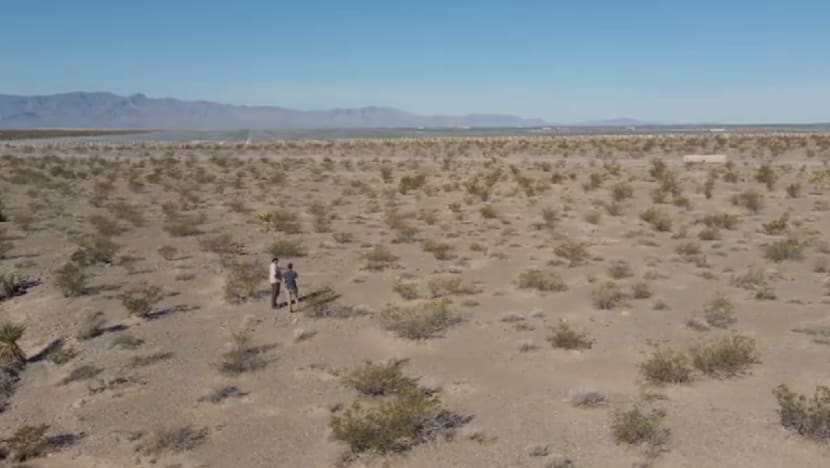
While this means more homes can be built and more of the population can be accommodated, thousands of native plants such as the Mojave yucca will be destroyed, and endangered species like desert tortoises will lose their habitats.
“More demand for energy, more demand for space and land, means that these places that people sometimes call empty deserts – (but) they’re not empty, they’re full of animal and plant communities – they’re threatened,” said environmental filmmaker Justin McAffee.
“Extinction is a real possibility for species. You fundamentally change these landscapes, and the balance that they have, and that puts every species at threat, including our own,” he added.
DRYING UP
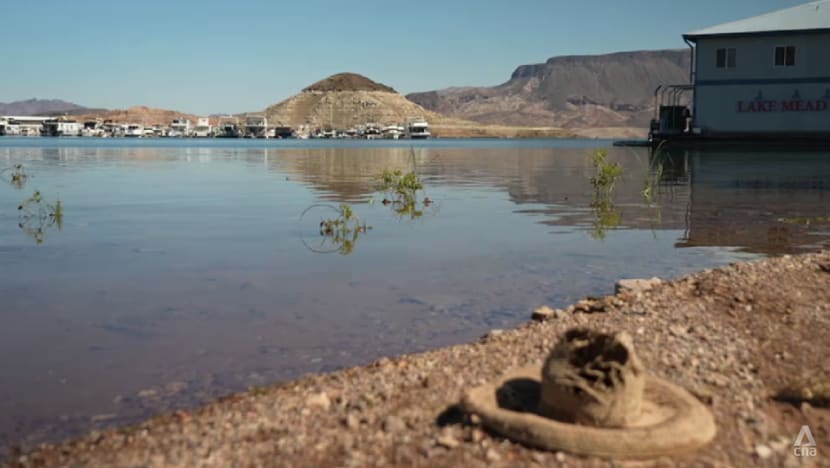
An hour’s drive away from the city is Las Vegas’ main water supply, Lake Mead - where about 90 per cent of the city’s drinking water comes from.
However, 20 years of drought have left so-called "bathtub rings" around the distant hills, showing where the water once reached. The distance from the dark lines down to the water’s surface today is the equivalent of a 15-storey building.
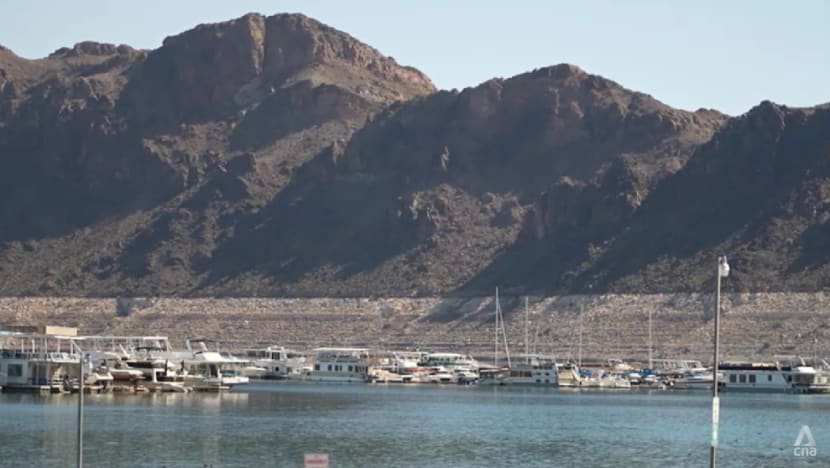
That drastic drop in water supply and the continued dry weather are raising questions about the sustainability of living conditions and population expansion, as Las Vegas heads into a hotter, drier future.
Water conservation is key, said experts, and the region is scrambling to reduce unnecessary consumption. In the last 18 years, water usage in the area has decreased by almost 50 per cent.
“We are seeing the long-term aridification of the western United States. Climate change is no longer something off into the future. Climate change is here, it is at our doorstep,” said Mr Bronson Mack, public outreach manager of the Southern Nevada Water Authority.
Mr Mack said he is worried about climate deniers – both politicians and voters – in the upcoming midterm elections.
“When I go into that voting booth I am thinking about climate change. I am thinking about representatives who understand the implications of climate change. If you’re a climate change denier, and you’re running for election, you’re not getting my vote,” he said.
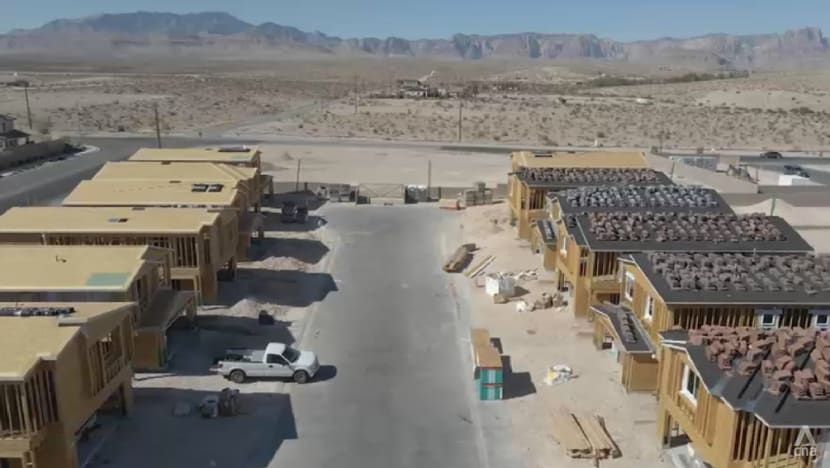
CLIMATE NOT TOP CONCERN FOR VOTERS
But Mr Mack is in the minority, said analysts, who believe that for voters in much of Las Vegas - as well as the rest of the US - climate concerns will not be a game-changer when they head to the ballot boxes on Tuesday (Nov 8).
Nonetheless, many issues that voters care about and which affect them directly - such as soaring prices and the cost of living - are indirectly impacted by climate change, said Ms Danielle Deiseroth, lead climate strategist at think tank Data for Progress.
“Climate change is certainly not the number one issue that's driving voters this election cycle,” Ms Deiseroth told CNA’s Asia First on Monday.
“But that's not to say that climate isn't woven into so many of these issues that matter to people like energy prices, or reliance on expensive fossil fuels … (These are) very much linked to climate change.”
Even though voters are slow to recognise environmental issues as a game-changer, Ms Deiseroth said politicians are increasingly having climate form part of their campaign material, although some are likely to use other terms such as “flood resilience” or “improving infrastructure”, because “the words ‘climate change’ can be very polarising”.
“Climate change has gone from sort of a fringe issue in the Democratic Party just a decade ago to now a central tenet of so many leading Democratic candidates’ campaigns even in really tough elections,” she said.
“We're also seeing younger generations of Republicans increasingly recognise that climate is something that they will have to reckon with during their time in office,” she added, citing Miami’s mayor Francis Suarez as one leading Republican vocal about the issue.
Ms Deiseroth said that with the effects of climate change increasingly felt, it is of “paramount importance” for the US to rapidly deploy clean energy technologies, and added that it is unlikely for climate efforts to be drastically scaled back at a national level even if the Republicans take control of the Senate.
“We can't avoid confronting the realities of climate change, whether it’s how we are powering our cars, our homes, how our infrastructure responds to climate-driven weather events,” she said.
“So moving forward, climate change is something that we will have to address in so many different policy areas, regardless of who's in charge in Congress.”


















